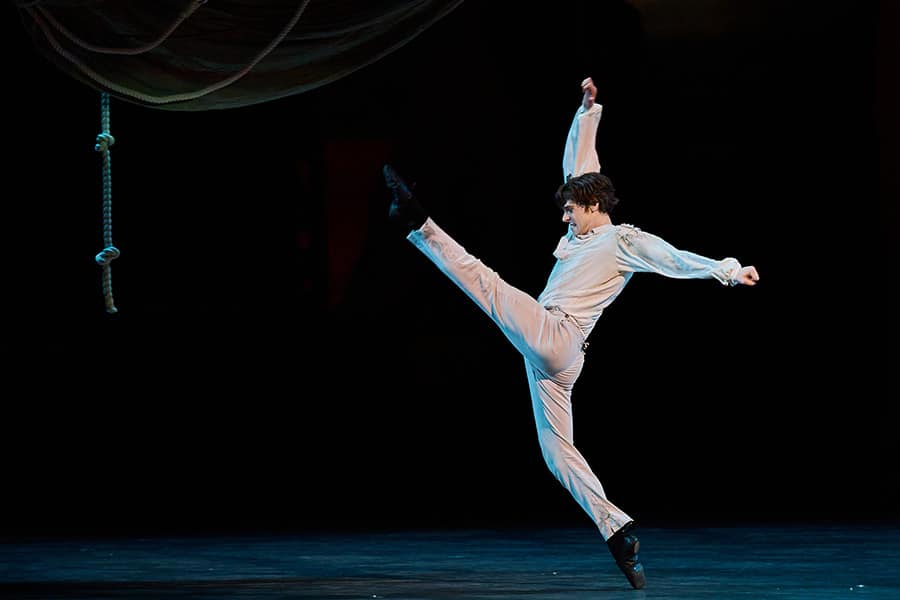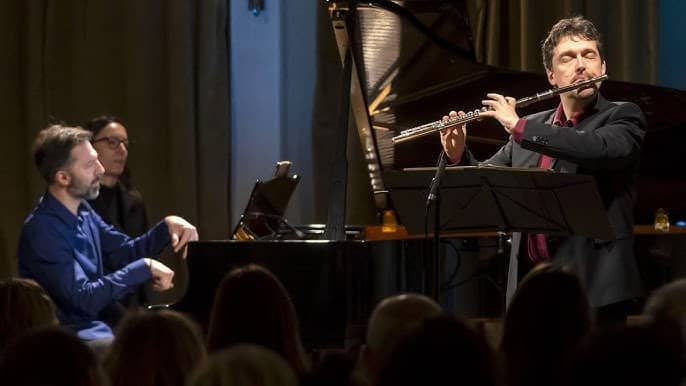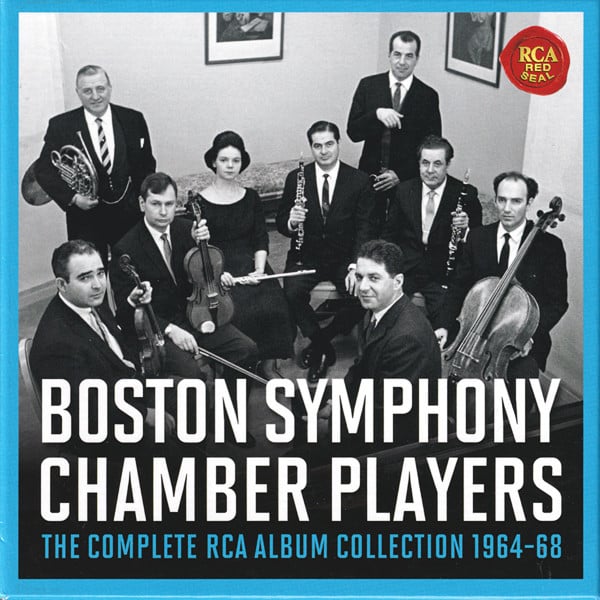The world over, they weep tonight for Claudio
mainSome tributes from Italy: President Giorgio Napolitano said that the death of Abbado “is a source of strong emotion and pain for me personally, and a profound loss for Italy and for (our) culture”. Last August, Napolitano appointed Abbado as a Senator for life, a position honouring Italians who have shown extraordinary scientific, social or artistic merit. “From today, Italy is poorer,” said Riccardo Chailly, named as principal conductor for La Scala beginning next year. “(His death) leaves a great void in the history of musical interpretation,” added Chailly, who described Abbado as a mentor. “For us Italians, Claudio has been a landmark…capable of representing the best of our tradition”.

Photo: (c) Chris Christodoulou/Lebrecht Music&Arts
Netherlands Opera director, Pierre Audi: I can’t think of a greater loss to the Arts in my lifetime.
Record producer Michael Fine: I recall Abbado once saying to me, ‘Per me, la parola straniero non esiste.’ For me the word foreigner does not exist.’
London singer Sharon Eckman:
When Abbado walked into a piano rehearsal, you could feel the energy ramp up – not from him, he was so quiet we could barely hear his instructions to us, and more often than not, these would be in the form of grunts – but because the magic always happened. For the chorus, in any case. The orchestra were a little less enamoured, for those very reasons. He also conducted without a score; a risky proposition for both conductor and orchestra. But because he never looked down, he was always looking at us. Or at me, obviously. Of course he looked at me, I adored him, why wouldn’t he?
Oh those looks… The ‘I have just ascended to heaven thanks to the string playing at the end of (insert Mahler symphony here)’. The ‘I asked for a diminuendo, and you have given me braying donkeys, I am now a broken man’. Or as one ex-LSC member put it today “The look of utter, inconsolable anguish when some phrase or other wasn’t exactly as he wanted it,” as though we’d killed his puppy, or the ghost of Mahler.
And the gestures. He didn’t need words – finger to the lips and we were as pianissimo as he. Praying gesture at the end of a concert and it was as though the gods of music were praying with him.
Albanian tenor Saimir Pirgu:
The year was 2003, when someone informed Maestro Abbado of a young Albanian tenor who had recently won two major voice competitions . The Maestro decided to hear me, I do not know exactly why: it could have been a curiosity to hear a tenor in his early twenties or the fact of my actually being Albanian since he was holding auditions for Mozart’s Così Fan Tutte. The two protagonists are called to disguise themselves as Albanians, and perhaps I, too, was intrigued by the strange coincidence of seeing an Albanian interpret the role of an Albanian. I remember it so clearly, as if it were now; after only a few minutes, the Maestro told me that the role of Ferrando was mine. It was one of the first roles that opened doors for me… Maestro Abbado had faith in me and I’ve always felt that he helped me and sensed with full conviction what I could become. This was not only valuable for me : there are hundreds of young artists whom Claudio Abbado discovered and guided on the magnificent journey of music and who now play , sing and conduct on the most important stages in the world.
Israeli conductor Noam Zur:
In 2011, I visited the Lucerne Festival and was lucky enough to see the great Claudio Abbado rehearse Mahler’s tenth symphony and to get a photocopy of his score from him (with his handwritten annotations).

He was the most noble, humble, gentle and modest man imaginable, and really took time to talk to me during his intermissions, several days in a row. This week, I am conducting the Adagio from the tenth symphony with the Transylvanian State Philharmonic Orchestra. Today, in the first rehearsal, I told this story to the orchestra while conducting the adagio out of “his” score. In the intermission, the musicians told me that the news had broken about his death, while we were playing his edition of the Adagio. I was so shocked that I couldn’t finish the rehearsal, and went to cry in my dressing room before returning to the hotel. Together with the orchestra, we decided to dedicate not only this piece, but the entire concert on Friday 24th of January to his memory. The rest of the program includes Mendelssohn Midsummer Night’s Dream overture, and Chopin f-minor piano concerto.
Swiss violinist Etienne Abelin:
You always insisted that we call you Claudio, not maestro, not Mr. Abbado, you wanted to be on eye level. But you were in fact always that little, subtle step ahead and ever so gently invited us to join you on that journey, in a way that felt like a catalyst. It needed no words. Your gift was to make us feel like we were fully ourselves, more than ourselves, never controlled from something outside, but gently guided. Guided to see and share beauty and more than that: to live an ethos of interconnectedness, collaboration, balance. For me, you embodied the best the world has to offer and this can and will live on. I’ll do my very best to contribute as much as I can.





I never saw Claudio Abbado live, though everything he’s ever conducted I own in DVD and CD. I don’t know what there was about his conducting that opened my heart to the most spiritual aspects of anything he touched. As one of his Lucerne musicians said: “I can’t explain the magic he performed on us, saying so little. We would get goose bumps…but there are no words to describe how or why”. I’m sure he knew what was about to happen when he chose Schubert’s “Unfinished” Syphony and especially Bruckner’s incompleted Ninth as the last music he’d ever conduct. I’m so grateful for having had the experience of his work in my life, and I thank you, Norman Lebrecht, for your lovely article.
My favorite Mahler 5th was with him on the podium. His attention to a tight synergy is rarer than most think. He’ll be missed.
I was lucky enough to see Abbado three times (once each with Berlin Philharmonic, Vienna Philharmonic and the Chicago Symphony) and meet him twice. He was an outstanding musician, conductor and human – the musical world is very empty today. He will be missed.
A 2011 BBC poll of several prominent conductors selected Carlos Kleiber as the ‘greatest conductor of all time,’ followed by Leonard Berstein and, third, Claudio Abbado…all sadly gone now.
Abbado had earlier declared in an interview that Kleiber was “one of the greatest, if not the greatest, conductors of the 20th century.”
It is difficult to argue with these assessments by such highly qualified masters of the art.
But there have been numerous ‘giants of the podium’ who are or were worthy of being ranked at or near the pinnacle. Furtwangler, Monteux, Tennstedt, Munch, Klemperer, Walter, Mitropoulos, Reiner are just a few of those who come to mind. I wonder what purpose is to be served by ranking any artists, be they musicians, composers, authors, painters, actors, architects, etc., when so many could be regarded as the greatest among equals.
I was privileged to attend a Lucerne concert in 2001 at which Abbado conducted the Berlin Philharmonic in Beethoven – with Radu Lupu in the 5th piano concerto, and then the ‘Pastorale’ symphony. I wrote in the programme – ‘The greatest concert I have ever attended’. There were tears in my eyes at the end of the Pastorale. The following year he conducted an unforgettable Parsifal, in Edinburgh. How fortunate I am to have been able to enjoy his muic-making. Rest in peace, maestro.
It’s good to see Pierre Audi’s gracious comment – which is all the more remarkable since he has worked closely with so many great artists. It’s also very meaningful to me personally since I worked with Pierre in London at the same time I first discovered Abbado, who was then leading some of the most awe-inspiring events I have been lucky enough to experience – for example, conducting the London Symphony Orchestra in his “Mahler, Vienna and the 20th Century” concert series and Tarkovsky’s production of Boris Godunov at Covent Garden. That production was Abbado’s idea, it wouldn’t have happened without his passion, devotion and hard work.
To have have somehow forged a connection between Pierre, who was then building the Almeida Theater into one of Europe’s leading contemporary performing arts venues, and Tarkovsky, already recognized as one of the world’s leading film directors but never having staged an opera (and in the midst of a titanic struggle with the practicalities of exile and failing health), and brought them together just a couple of miles away from each other in two of the most exciting venues in London to is just one example of Abbado’s peerless contributions to our culture – and one I will never forget.